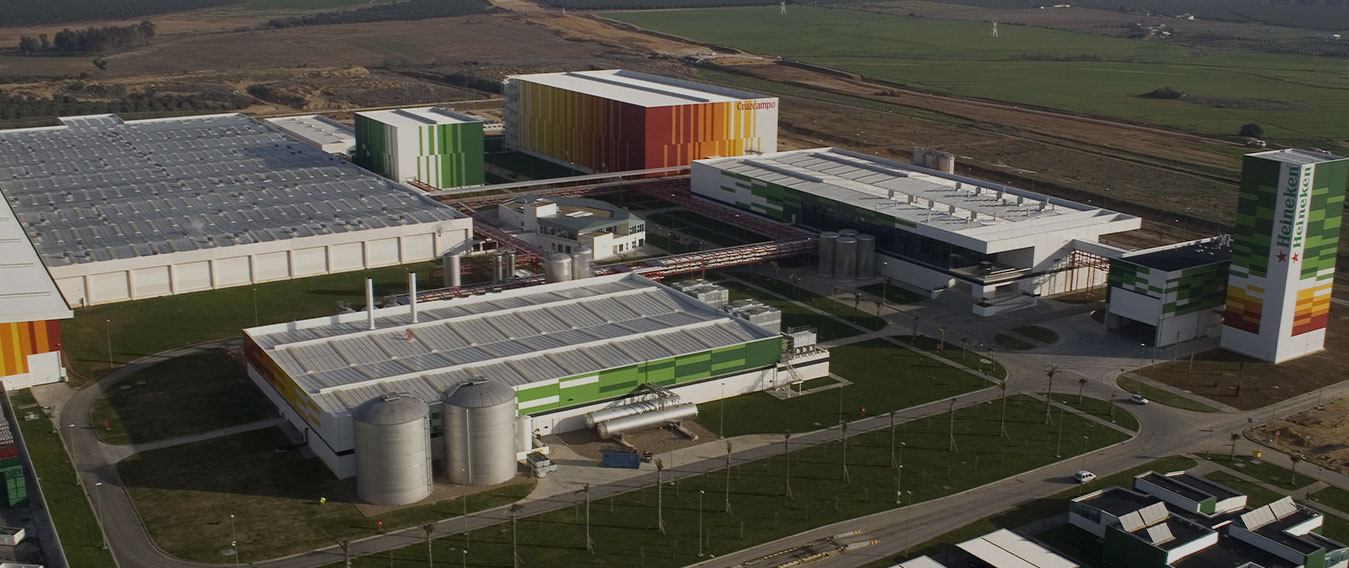ENGIE's solution: to build and commission a 100% renewable concentrated solar power thermal plant
As the largest European brewer and world number two with over 300 brands of beer on the market, Heineken is a highly influential group in the agri-food sector. Its "Drop the C" programme, a plan to reduce carbon emission, is a key part of the company's sustainable development strategy, "Brew a better world".
In May 2022, Heineken called on ENGIE Spain to help it push ahead with its decarbonization strategy, through an energy solution that will put the brewery five years ahead of its initial carbon neutrality commitment (2030).
To achieve this, ENGIE will build and commission a 100% renewable concentrated solar power thermal production plant in Heineken's factory in Seville. ENGIE is responsible for the design, installation, management, maintenance and financing of the project, materialised in a long-term BOOT (Build, Own, Operate, Transfer) contract to supply 100% renewable energy to Heineken Spain for the next 20 years. The new facility will enable Heineken Spain to reduce its fossil gas consumption by 60% and its carbon footprint by 7,000 tonnes CO2e a year.
This energy production model, located close to where the energy is used, is part of a short consumption channel, in line with the first carbon neutrality goal. The second goal is to use 100% renewable energy, in this case solar energy, by building the largest on-site solar-powered thermal plant in Europe. The production facility will double the production capacity for superheated water* for the factory's own consumption in beer manufacturing and packaging.
In recent years, Heineken has already taken major steps in Spain, particularly with its zero-emission factory in Jaén (Andalusia), which uses energy from biomass produced from the region's olive groves. The ENGIE plant at Heineken's Seville factory will enable the brewery to achieve its goal of net zero emissions in Spain before 2025. Making Heineken a low-carbon pioneer in the European agri-food sector.
* Superheated water boilers use water that is above boiling point (110 ºC - 374 ºC) but which must always remain in a liquid state. To do this, they operate at a higher pressure to prevent evaporation.
Key figures
- This production facility in Seville is the industry's largest solar thermal plant in Europe.
- Solar farm almost 20 hectares in surface area (or 8 football pitches).
- 55% of thermal energy used by the factory comes from solar power.
- 7,000 tonnes of CO2 avoided a year

